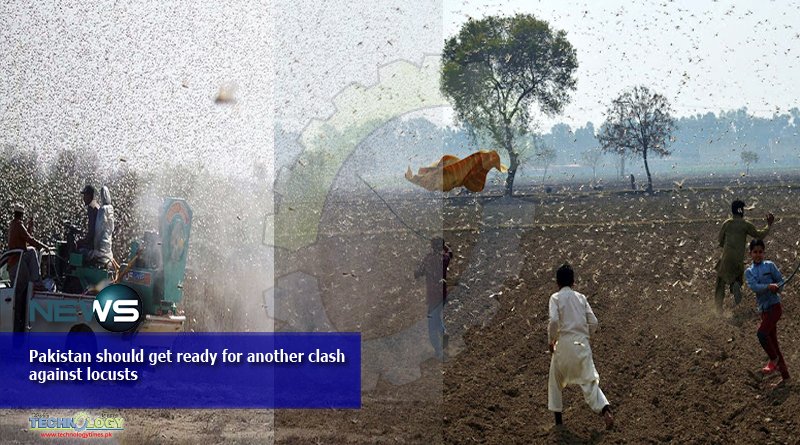To many farmers in south-east Pakistan, an impending locust attack when summer crops of cotton, sugarcane, and rice are being sown, and fruit and vegetables are ready to be picked is a much bigger problem than the coronavirus pandemic. Another wave is arising so Pakistan should get ready for another clash against locusts.

Pakistan should get ready for another clash against locusts. Losses are huge already due to the first wave. The United Nations’ Food and Agriculture Organization estimates losses to agriculture from locusts this year could be as high as PKR 353 billion ($US2.2 billion) for winter crops like wheat and potatoes and about PKR 464 billion for summer crops.
A May update from the FAO warned it would be “imperative” to contain and control the desert locust infestation in the midst of the additional impacts of the COVID-19 pandemic on health, livelihoods, food security, and nutrition for Pakistan’s most poor and vulnerable communities.
Farmers now have little confidence the government will help them fight a new wave of voracious insects threatening their harvests – though officials said extensive measures were being taken.
“Neither the central, nor the provincial government is doing anything about it,” said Bhurgri, who grows vegetables, red chilies, cotton, and sugarcane on about 600 acres of land.
The locusts arrived in Pakistan from Iran in June 2019, devouring cotton, wheat, and maize, among other crops.
The invasion was initially expected to subside by mid-November. But it has persisted due to favorable weather conditions for continued locust breeding, linked to global warming, according to FAO’s Pakistan office.
“Good vegetation due to plentiful rain and sandy soil provided a perfect setting for the insects to multiply,” said Muhammad Tariq Khan, technical director at the Department of Plant Protection in the Ministry of National Food Security and Research.
In a recent letter to Prime Minister Imran Khan, Sindh Chief Minister Murad Ali Shah warned of a “massive locust attack” expected on local farmland when swarms from Iran reach his province in mid-May, which could “prove more harmful” than last year’s invasion.
